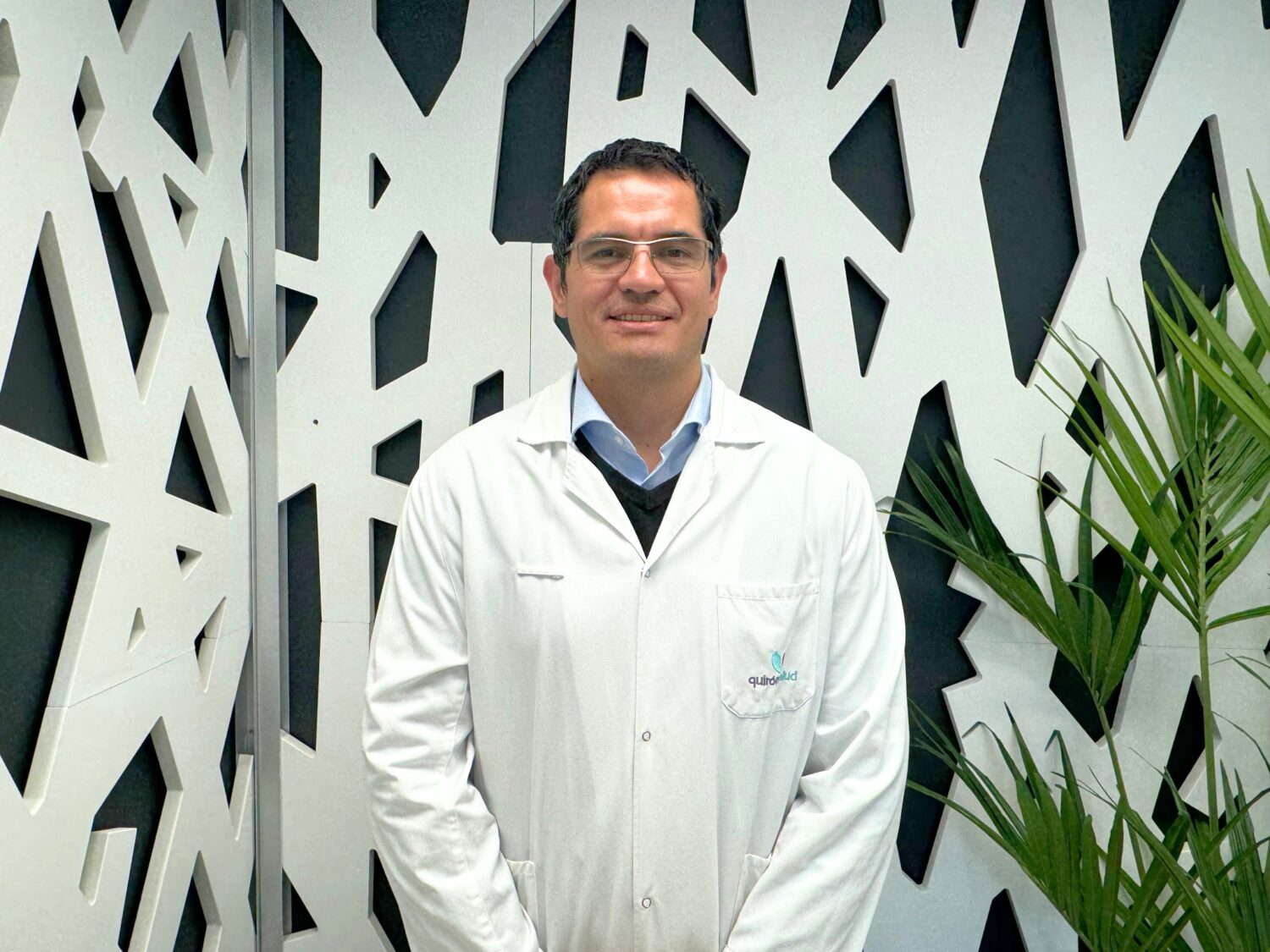The Cure Rate for Advanced Pelvic Tumours is above 70% thanks to Oncological Surgery
The survival rate for pelvic tumours is above 70% after five years thanks to the use of surgical techniques such as pelvic exenteration. To mark World Cancer Day this coming Monday, February 4, oncology experts at Quirónsalud highlight the importance of high specialisation. According to Doctor Blas Flor, Head of the Oncological Surgery Service at Hospital Quirónsalud Valencia, "the goal is to obtain a full local resection of the advanced tumour with the best survival results."
Pelvic exenteration consists in the radical surgical removal of the distal colon, the rectum, the bladder and the prostate-seminal vesicles in the man, and the uterus-ovaries-vagina in the woman. "This technique," points out Doctor Pedro Bretcha, president of the Sociedad Española de Oncología Quirúrgica (SEOQ, or Spanish Surgical Oncology Society) and Head of the Oncological Surgery Service at Hospital Quirónsalud Torrevieja, "is particularly indicated for uterine cancer, vaginal cancer and rectal tumours, and less frequently for urinary bladder or prostate tumours." Though this technique includes the less of the intestinal and urinary sphincters, "it is the only possible therapeutic alternative for these locally advanced tumours, considered unresectable with conventional treatments, and which condemns these patients to a quality of life marred by intense pelvic pain, bleeding, local infection, fistulisation of neighbouring organs and, finally, death," states Doctor Flor.
For Doctor Pedro Cascales, Coordinator of the Grupo Español de Cirugía Oncológica Peritoneal (GECOP, or Spanish Group for Peritoneal Oncological Surgery) and Responsible for the Oncological Surgery Unit at Hospital Quirónsalud Murcia, "with this technique we have achieved a significant reduction in mortality, while also offering a better quality of life to patients who were usually considered incurable after their first evaluation. This progress has been achieved thanks to accumulated experience, better post-operatory management, new neoadjuvant radiotherapy and chemotherapy schemes, and especially the super-specialisation of the surgeons that face these pathologies on a daily basis."
Doctor Cascales highlights the importance of working within a multidisciplinary team for this type of oncological treatments, "we surgeons no longer work alone; we are integrated as part of a multidisciplinary team, placing, at the disposal of the patient and in favour of healthcare excellence, a technical focus that understands the biology and natural history of the disease, as well as the contributions to the treatment of cancer patients made by other disciplines. This is the moment at which the surgeon must be seen as a surgical oncologist."
"To achieve success in these procedures," explains Doctor Bretcha, "these patients must be intervened at centres that are highly specialised in highly complex procedures and experienced in oncological rescue, such as the treatment of peritoneal carcinomatosis with radical cytoreduction surgery and HIPEC, sarcoma surgery, isolated limb perfusion in melanoma, hepatobilliary and pancreatic, gastro-oesophageal or thoracic surgery, etc." The possibility of having a device to apply radiotherapy in the operating theatre helps obtain greater local control after removing cancer.
How does Intra-Operatory Radiotherapy Work
Intra-Operatory Radiotherapy (IOR) is a high-precision technique in which we administer a sole, high fraction of radiotherapy to the tumour bed during a surgical intervention, with the advantage of direct visualisation of the bed to be radiated, avoiding unnecessary radiation of the surrounding healthy tissue, and therefore toxicity.
IOR has been used to treat different malignant tumours, such as gastric, pancreatic, rectal, lung or gynaecological cancer, retroperitoneal and limb carcinomas, usually in programmes that include external radiation, to increase local control of the disease. It also has a particular application in the treatment and curing of breast cancer, as long as it is indicated by the specialist.
Current events
Current events
- 16 de enero de 2026
La colaboración entre Neurofisiología Clínica y los equipos quirúrgicos refuerza la seguridad en cirugías...
Un enfoque multidisciplinar optimiza la atención quirúrgica y aporta seguridadHospital Universitario Infanta Elenaen/health-centers/hospital-universitario-infanta-elena - 15 de enero de 2026
El traumatólogo de Policlínica Gipuzkoa, Dr. Gastón Camino, recibe un prestigioso reconocimiento internacional...
Se trata del Luiz Vialle Award 2026 otorgado por la comunidad académica AO Spine que distingue cada año a cinco expertos en todo el mundo por su excelencia investigadora y su...Hospital de Día Quirónsalud Donostiaen/health-centers/hospital-dia-quironsalud-donostiaPoliclínica Gipuzkoaen/health-centers/policlinica-gipuzkoaTraumatología y Cirugía Ortopédicaen/specialities/cirugia-ortopedica-traumatologia - 15 de enero de 2026
El Hospital Universitario General de Villalba consolida su experiencia en cirugía de hernia con alrededor...
La cirugía de hernia es un procedimiento muy frecuente en la práctica hospitalaria dada su elevada prevalenciaHospital Universitario General de Villalbaen/health-centers/hospital-universitario-general-villalba






